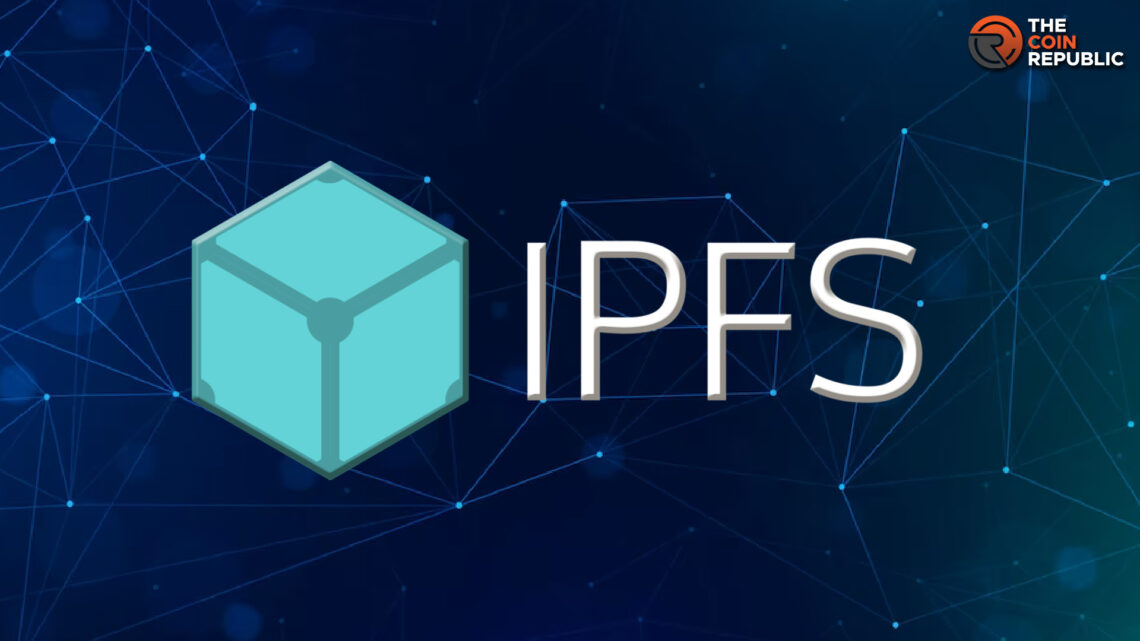- 1 IPFS empowers users by decentralizing the Internet for speed, security, and equity.
- 2 IPFS fosters censorship resistance, privacy, and user control in a decentralized web.
- 3 Challenges include scalability, adoption, and user familiarity, but IPFS holds transformative potential.
In response to the growing concerns of internet centralization by dominant tech corporations, a rapidly advancing technology, the InterPlanetary File System (IPFS), emerges as a solution that empowers users by decentralizing the online landscape. As a peer-to-peer protocol, IPFS revolutionizes file storage and sharing, eliminating the dependence on centralized servers. IPFS can accelerate the internet’s speed, security, and openness by directly connecting user devices to store and distribute content.
The Role of IPFS in Web 3.0: Enabling a User-Centric Internet
Its decentralized structure addresses monopolistic tendencies, fosters privacy, resists censorship, and facilitates community-driven networks. As a pivotal component of the Web 3.0 vision, IPFS strives to reshape the internet into an equitable, transparent, and user-centric realm, countering the shortcomings of the present digital sphere.
The current internet uses URLs to link to files on the web. URLs point to locations where files are stored on servers. This is called location-based addressing. IPFS uses content-based addressing instead.
With IPFS, files are given a unique fingerprint called a cryptographic hash. This hash is derived from the content within the file itself, allowing you to distinguish files based on their actual content rather than their specific location.
IPFS makes the web faster. Files on IPFS can be accessed from anywhere on the network. Nodes store and serve files to each other. This speeds up file transfers. The more nodes there are, the faster the system.
IPFS also makes files more durable. On today’s web, broken links happen when servers go down. With IPFS, links never break because they point to file content. Files exist as keep storing them.
Security is better on IPFS. The data is cryptographically hashed. Tampering can be easily detected. IPFS uses end-to-end encryption by default. This prevents spying and traffic analysis.
Censorship resistance is built into IPFS. The decentralized network has no central point of failure. Shutting down nodes won’t stop files from spreading. This allows for the free flow of information.
IPFS aims to make the web more equitable. It reduces the control of central authorities. Data is shared across open networks rather than stored in silos. The system is transparent and lightning-fast.
IPFS is a core part of Web 3.0. Along with blockchain, it can enable user-owned internet services. These services could replace today’s data monopolies. Users can control their data and digital identity.
For example, decentralized storage projects are being built on IPFS. Filecoin and Storj allow users to rent out spare disk space. This distributed cloud storage competes with centralized services like Amazon S3.
Decentralized social networks can be built on IPFS. Data is stored encrypted across peer nodes for privacy. This prevents monopolistic data mining done by platforms like Facebook. The public timeline data can be stored on tamper-proof blockchains.
IPFS integration allows websites and apps to be hosted directly on users’ devices. This eliminates centralized servers and companies. Content flows between peers for quick delivery. The Internet has become a community-owned infrastructure.
IPFS: Empowering Secure and Decentralized Internet Services
Challenges for IPFS remain around scalability and incentives. Filecoin and other incentives aim to grow the storage network. Multiple innovations are improving query speed. But work is still needed to make IPFS competitive with today’s centralized platforms.
IPFS presents an assured vision for the future of the internet. With its peer-to-peer file-sharing capabilities, it continues to promote online security, speed, and equity. IPFS can introduce a fresh and enhanced era of the internet, characterized by community-driven initiatives and providing users with more control over their data and online engagements.
IPFS is still a new technology in active development. But it shows the promise of decentralization for restoring the open, interoperable web. Along with blockchain, IPFS may provide the backbone for Web 3.0 applications that put users first instead of big tech companies. So far, it’s grassroots adoption and growth point to a brighter future as protocols improve.
Key Advantages of IPFS: Speed and Resilience
A key benefit of IPFS is speed. Centralized servers can get overloaded with requests. However, IPFS uses a distributed network of node servers to store and deliver files. The more nodes join, the faster and more resilient the system gets.
IPFS also reduces internet censorship. Centralized servers are vulnerable to government takedown demands. However, decentralized networks have no central point of control. Only shut-down nodes will stop files from spreading to other parts of the network.
Importantly, IPFS shifts power away from monopolistic tech giants and back towards users. Users can control their data and digital experiences instead of having them monetized by corporations. The decentralized web allows communities to self-govern with transparency.
However, IPFS faces adoption challenges. The protocol is still quite new and is improving with each release. Most users need to become more familiar with decentralization. Onboarding and user experience gaps remain compared to today’s platforms. But with time, it can change.
Conclusion
IPFS has great potential. It can make the internet more secure and resilient. It can also make the internet more user-driven. As IPFS protocols mature, adoption will spread. IPFS could become a main part of Web 3.0. It would join the blockchain to change how we interact online. The vision of an open, decentralized web is close. This is because of IPFS. IPFS makes the vision of an open web very possible. Short, simple sentences are used to recap the key points. This concludes the overview of how IPFS can transform the internet.

With a background in journalism, Ritika Sharma has worked with many reputed media firms focusing on general news such as politics and crime. She joined The Coin Republic as a reporter for crypto, and found a great passion for cryptocurrency, Web3, NFTs and other digital assets. She spends a lot of time researching and delving deeper into these concepts around the clock, and is a strong advocate for women in STEM.


 Home
Home News
News






